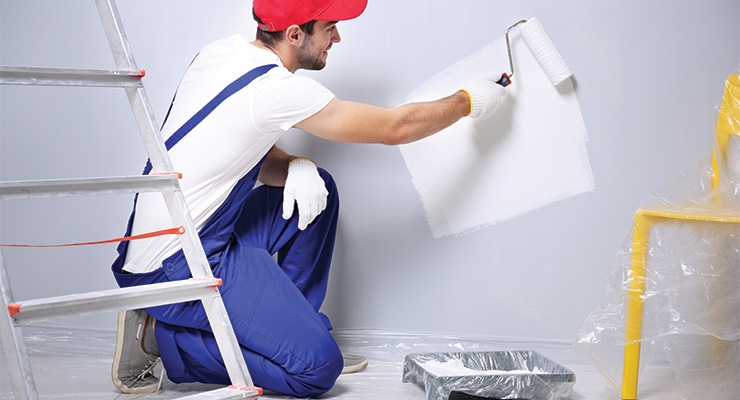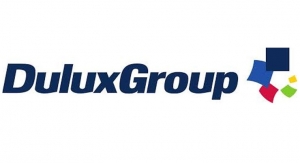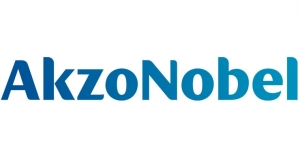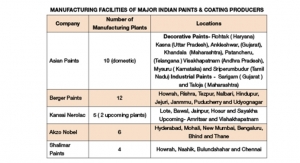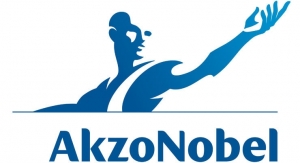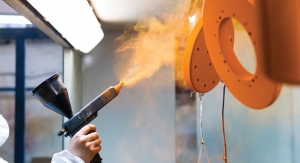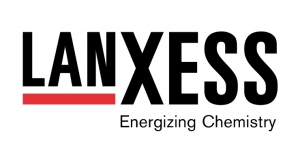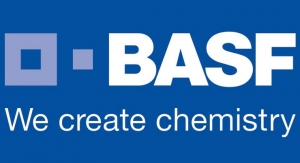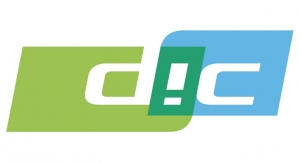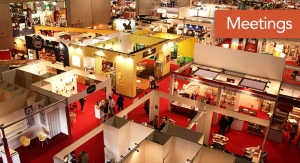Sean Milmo, European Correspondent08.09.19
Professional painters are continuing to increase their share of the European decorative coatings sector as a growing number of consumers become disenchanted with DIY.
Instead of opting for DIY, an increasing proportion of home improvers in many European countries are switching to do-it-for-me (DIFM) by employing trade painters to do the decorative and other work for them.
As a result, coatings producers and retailers are having to rethink their marketing strategies amidst the realization that consumers need more help in tackling their home improvement projects.
Some of the biggest strategic changes are being made by the retailers who are refocusing the formats of their stores and online sales channels to offer more assistance to customers.
UK-based Kingfisher plc, one of Europe’s largest international home improvement retailers with large chains in the UK, France and Poland, is reorganizing its stores into different categories to meet the specific needs of customers.
“Our customers tell us: home improvement can be a nightmare,’’ Veronique Laury, Kingfisher’s chief executive, told a recent company Innovation Day meeting of investors and analysts. “The heart of our purpose – everything that we have been doing for the last three years and will continue to do – is about fixing this nightmare.’’
DIY is painful for many elderly people because physically they are not able to do much of the work anymore. Meanwhile young people believe they do not have sufficient experience to do jobs themselves.
“For a lot of young people DIY is not fashionable any more,’’ said Nyssa Patel, industry analyst and economist, at the UK’s Builders Merchants Federation (BMF), whose members are mainly distributors and suppliers to the repair and maintenance part of the construction sector.
“DIY is not part of a lot of young people’s culture,’’ explained Patel.” They feel they do not have the skills. Nor do many of them have the time. So, if they can, they get someone else to do the work.’’
DIFM’s share of the decorative market rose from 32 percent in 2014 to 34 percent in 2018, while DIY dropped from 68 percent to 66 percent in the same period, according to a survey by the Dutch marketing consultancy USP. The study covered 11 countries in Europe, including the region’s biggest markets of Germany, France, UK, Italy, Spain, Poland and Netherlands.
“There were clear connections between levels of DIFM and the popularity of DIY in individual countries,’’ said Dirk Hoogenboom, a USP consultant.
In the UK, for example, there is a relatively strong demand for DIFM while at 32 percent it had the highest level of dislike of decorative DIY among respondents in the USP survey. At the same time, at 40 percent, the country registered the lowest proportion of those “very much liking” or “liking” doing decorative jobs themselves.
In the Netherlands also decorative DIFM is preferred by a lot of consumers while the popularity of DIY decorating has been falling.
On the other hand, Italy has a relatively low DIFM ranking but at 63 percent its consumers in the survey were second only to Poland at 70 percent in liking doing decorative DIY.
“In Italy DIY makes sense because the country’s economy has not been doing well so for many Italians there is no alternative,” Hoogenboom explained. “Young Italians gain more experience of DIY than those in some other countries. So it is easier for them and they get to like it.’’
However for householders reluctant to rely on DIY, professional decorators are becoming more difficult to find in many European countries. This is due mainly to an aging workforce so that more self-employed decorators are leaving the trade and are not being replaced by sufficient young recruits. In the UK, for example, two thirds of professional painters are due to retire within 10 years.
“The shift from DIY to DIFM does not seem as fast as some would have expected,’’ said Hoogenboom. “One explanation is that the rise of DIFM is somewhat hampered by the increasing labor shortage on the European markets.’’
“For consumers, this makes it harder to find a professional. Additionally, since demand is high, order books are full (and) prices are rising, outsourcing home improvement jobs (is) less attractive.’’
With DIFM demand outstripping supply of decorators in many countries, paint companies and home improvement retailers are stepping up their efforts to help customers find suitable professionals.
Coatings companies have in particular been trying both to tackle the aversion of some consumers to DIY and to deal with shortages of trade painters.
AkzoNobel, the European decorative market leader supported by the long-established Dulux brand, has introduced the Dulux Easycare range of tough, durable and washable paints which ensures that wall coatings are long lasting. It is also marketing Dulux Once, which has been specially formulated to give consumers a quality finish in just one coat.
In the UK, which is one of AkzoNobel’s main decorative markets in Europe, the company has been trying to deal with a lack of investment in the country in training of young professional decorators by setting up the Dulux Academy.
“(This is ) the UK’s first dedicated painting and decorating training centrt, (which) aims to train a new generation of painters and decorators,’’ said a UK spokesperson for the company which claims to be on track to train 10,000 professionals by the end of 2020.
Dulux Academy now delivers officially approved training at over 10 venues through a partnership with colleges across the UK.
“More than 50 courses are available, covering every element of decorating and supporting every stage of a painter and decorator’s career,’’ said the spokesperson.
Now home improvement retailers are taking similar initiatives with the objective of not just training professionals but also their own staff so that they can give more knowledgeable support in paint applications and all aspects of home improvement.
Kingfisher has just launched in the UK a GoodHome Academy with the aim of spreading the concept of a single training organization across its markets in the rest of Europe.
“This is our new training program for all colleagues (staff) across the group, which helps them to master skills and break down the know-how barrier,’’ said Laury.
The provision of services for making decorating and other home improvements easier for consumers is becoming a competitive area not just between coatings companies but between paint producers and retailers.
Instead of opting for DIY, an increasing proportion of home improvers in many European countries are switching to do-it-for-me (DIFM) by employing trade painters to do the decorative and other work for them.
As a result, coatings producers and retailers are having to rethink their marketing strategies amidst the realization that consumers need more help in tackling their home improvement projects.
Some of the biggest strategic changes are being made by the retailers who are refocusing the formats of their stores and online sales channels to offer more assistance to customers.
UK-based Kingfisher plc, one of Europe’s largest international home improvement retailers with large chains in the UK, France and Poland, is reorganizing its stores into different categories to meet the specific needs of customers.
“Our customers tell us: home improvement can be a nightmare,’’ Veronique Laury, Kingfisher’s chief executive, told a recent company Innovation Day meeting of investors and analysts. “The heart of our purpose – everything that we have been doing for the last three years and will continue to do – is about fixing this nightmare.’’
DIY is painful for many elderly people because physically they are not able to do much of the work anymore. Meanwhile young people believe they do not have sufficient experience to do jobs themselves.
“For a lot of young people DIY is not fashionable any more,’’ said Nyssa Patel, industry analyst and economist, at the UK’s Builders Merchants Federation (BMF), whose members are mainly distributors and suppliers to the repair and maintenance part of the construction sector.
“DIY is not part of a lot of young people’s culture,’’ explained Patel.” They feel they do not have the skills. Nor do many of them have the time. So, if they can, they get someone else to do the work.’’
DIFM’s share of the decorative market rose from 32 percent in 2014 to 34 percent in 2018, while DIY dropped from 68 percent to 66 percent in the same period, according to a survey by the Dutch marketing consultancy USP. The study covered 11 countries in Europe, including the region’s biggest markets of Germany, France, UK, Italy, Spain, Poland and Netherlands.
“There were clear connections between levels of DIFM and the popularity of DIY in individual countries,’’ said Dirk Hoogenboom, a USP consultant.
In the UK, for example, there is a relatively strong demand for DIFM while at 32 percent it had the highest level of dislike of decorative DIY among respondents in the USP survey. At the same time, at 40 percent, the country registered the lowest proportion of those “very much liking” or “liking” doing decorative jobs themselves.
In the Netherlands also decorative DIFM is preferred by a lot of consumers while the popularity of DIY decorating has been falling.
On the other hand, Italy has a relatively low DIFM ranking but at 63 percent its consumers in the survey were second only to Poland at 70 percent in liking doing decorative DIY.
“In Italy DIY makes sense because the country’s economy has not been doing well so for many Italians there is no alternative,” Hoogenboom explained. “Young Italians gain more experience of DIY than those in some other countries. So it is easier for them and they get to like it.’’
However for householders reluctant to rely on DIY, professional decorators are becoming more difficult to find in many European countries. This is due mainly to an aging workforce so that more self-employed decorators are leaving the trade and are not being replaced by sufficient young recruits. In the UK, for example, two thirds of professional painters are due to retire within 10 years.
“The shift from DIY to DIFM does not seem as fast as some would have expected,’’ said Hoogenboom. “One explanation is that the rise of DIFM is somewhat hampered by the increasing labor shortage on the European markets.’’
“For consumers, this makes it harder to find a professional. Additionally, since demand is high, order books are full (and) prices are rising, outsourcing home improvement jobs (is) less attractive.’’
With DIFM demand outstripping supply of decorators in many countries, paint companies and home improvement retailers are stepping up their efforts to help customers find suitable professionals.
Coatings companies have in particular been trying both to tackle the aversion of some consumers to DIY and to deal with shortages of trade painters.
AkzoNobel, the European decorative market leader supported by the long-established Dulux brand, has introduced the Dulux Easycare range of tough, durable and washable paints which ensures that wall coatings are long lasting. It is also marketing Dulux Once, which has been specially formulated to give consumers a quality finish in just one coat.
In the UK, which is one of AkzoNobel’s main decorative markets in Europe, the company has been trying to deal with a lack of investment in the country in training of young professional decorators by setting up the Dulux Academy.
“(This is ) the UK’s first dedicated painting and decorating training centrt, (which) aims to train a new generation of painters and decorators,’’ said a UK spokesperson for the company which claims to be on track to train 10,000 professionals by the end of 2020.
Dulux Academy now delivers officially approved training at over 10 venues through a partnership with colleges across the UK.
“More than 50 courses are available, covering every element of decorating and supporting every stage of a painter and decorator’s career,’’ said the spokesperson.
Now home improvement retailers are taking similar initiatives with the objective of not just training professionals but also their own staff so that they can give more knowledgeable support in paint applications and all aspects of home improvement.
Kingfisher has just launched in the UK a GoodHome Academy with the aim of spreading the concept of a single training organization across its markets in the rest of Europe.
“This is our new training program for all colleagues (staff) across the group, which helps them to master skills and break down the know-how barrier,’’ said Laury.
The provision of services for making decorating and other home improvements easier for consumers is becoming a competitive area not just between coatings companies but between paint producers and retailers.

